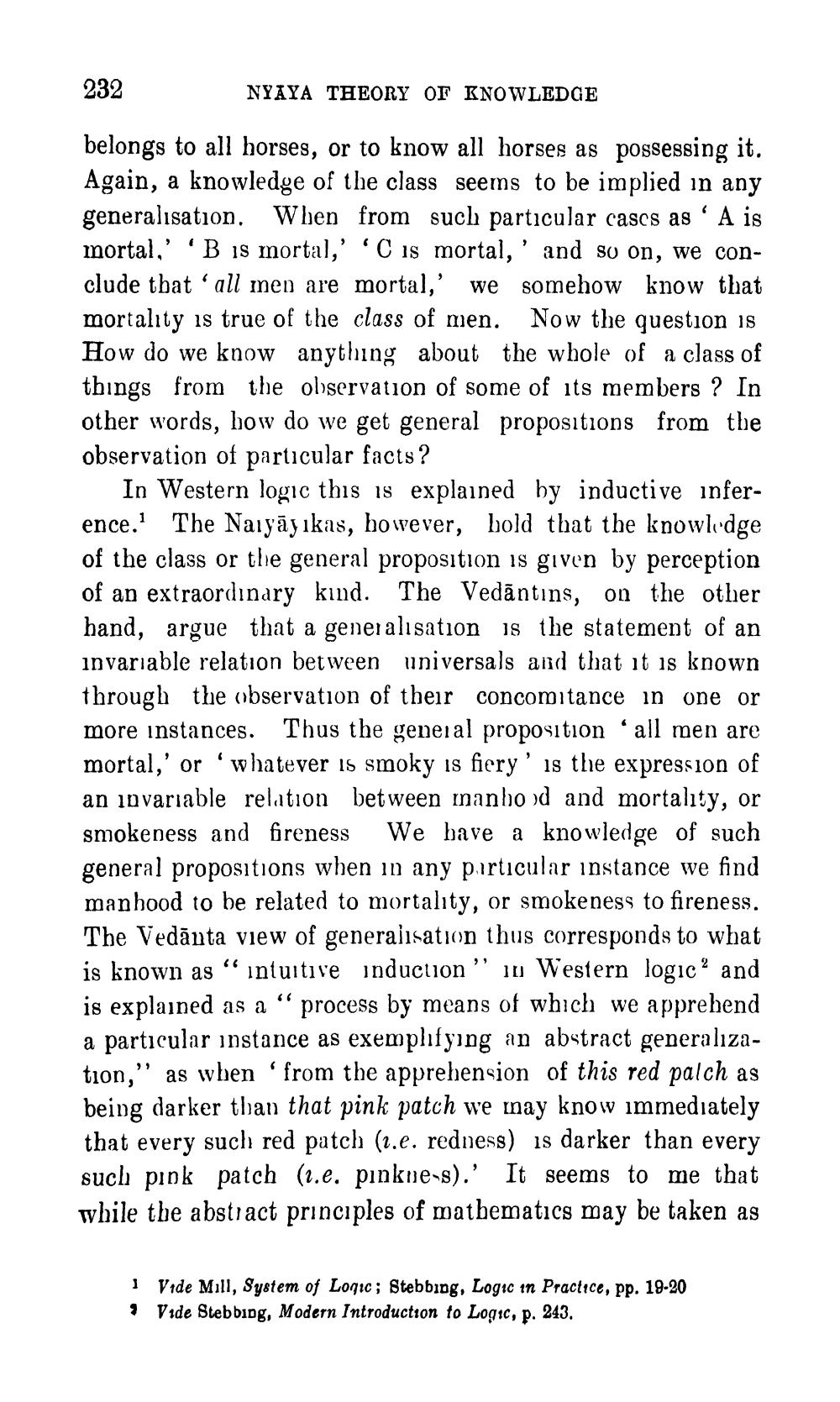________________
232
NYAYA THEORY OF KNOWLEDGE
belongs to all horses, or to know all horses as possessing it. Again, a knowledge of the class seems to be implied in any generalisation. When from such particular cascs as ' A is mortal,' 'B is mortal,' 'C is mortal,' and so on, we conclude that all men are mortal,' we somehow know that mortality is true of the class of men. Now the question is How do we know anything about the whole of a class of things from the observation of some of its members ? In other words, how do we get general propositions from the observation of particular facts?
In Western logic this is explained by inductive inference.' The Naiyāyikas, however, bold that the knowledge of the class or the general proposition is given by perception of an extraordinary kid. The Vedāntins, on the other hand, argue that a generalisation is the statement of an invariable relation between universals and that it is known through the observation of their concomitance in one or more instances. Thus the general proposition all men are mortal,' or 'whatever is smoky is fiery' is the expression of an invariable relation between inanbod and mortality, or smokeness and fireness We have a knowledge of such general propositions when in any particular instance we find manhood to be related to mortality, or smokeness to fireness. The Vedānta view of generalisation thus corresponds to what is known as “ intuitive induction" in Western logic? and is explained as a “ process by means of which we apprehend a particular instance as exemplifying an abstract generalization,” as when 'from the apprehension of this red palch as being darker than that pink patch we may know immediately that every such red patch (2.2. redness) is darker than every such pink patch (z.e. pinkne-s).' It seems to me that while the abstract principles of mathematics may be taken as
1 Vide Mill, System of Logic; Stebbing, Logic in Practice, pp. 19-20 1 Vide Stebbing, Modern Introduction to Logic, p. 243.




